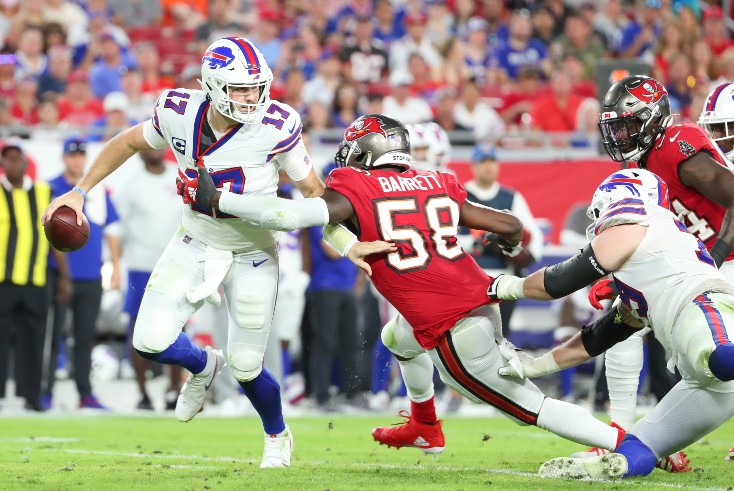What the NFL’s private equity deal means for media rights

Private equity’s entrance into the US National Football League (NFL) could mark a turning point for its TV rights, according to media analysts.
On Tuesday, NFL owners voted to approve a league-wide measure that would allow private equity companies to take stakes in teams.
The NFL had been the last of the major US sports leagues to allow private equity funding. The basketball, hockey, baseball and soccer leagues all allow private equity funding of up to 30% of franchises, albeit with different rules governing the number of teams a given fund can have a stake in.
For the NFL, private equity groups will be allowed to take a maximum 10% stake in any individual team and up to six teams in total. Funds making the investment must commit to maintaining it for six years before a sale is allowed.
The NFL has described the investments as “passive”, given no private equity fund will be given voting power.
Analysis: PE interest obvious
In a LinkedIn post, media analyst Ian Whittaker called the move “probably one of the most fundamentally important announcements when it comes to sports rights”.
He wrote: “The economics of the US sports rights system (and the way rights are sold) means that PE owners can make potentially far much more money than they can do by owning European football franchises, for example.”
The NFL last signed its major media deal during the height of the Covid pandemic in 2021 and it will last through the 2033 season. As part of agreements with CBS (Paramount), NBC (Comcast), Fox, ESPN (Disney) and Amazon, the league will earn $110bn over 11 years. That figure amounts to double the previous rights agreement.
Live sports have become increasingly valuable for licensees, given they are one of the few reliable pieces of entertainment that still draws viewers away from VOD platforms and back to linear.
But on top of selling rights to linear broadcasters, leagues can also make additional revenue by selling rights to streaming companies as well.
As media analyst Alex DeGroote told The Media Leader: “The most recent US NFL broadcast deal showed hyper-inflation. If this pattern repeats, it is obvious why PE would be interested in the income potential of NFL franchises. This is driving higher valuations of franchises.”
NBA rights deal highlights importance of live sports and impact of streaming
Globalised growth
With the added revenue from more lucrative TV rights deals, the NFL has sought to expand its audience through increasing investment in its international footprint and seeking to improve appeal to younger audiences and cord-cutters via streaming.
The league will play six games this year in international markets, including three in London during October, as it looks to garner more fans outside its home market.
According to a report from law firm Clearly Gottlieb, private equity activity in sports tends to primarily focus on “tapping into growth in the consumer base for international sports by developing marketing and distribution opportunities tied to leagues and major events, as well as clubs and their stars”.
Clearly Gottlieb suggests that private equity groups that build investments across a number of teams and leagues can then “leverage greater bargaining power” with broadcasters and commercial partners to the benefit of the leagues.
However, DeGroote doesn’t believe private equity investment would necessarily “lead to higher TV deals”, especially given the limit to their ownership stakes.
Will linear get boxed out?
Nonetheless, as DeGroote noted, sports rights costs have already risen substantially in recent years on the back of the increased importance of live sports and Big Tech companies with lots of cash, such as Apple and Amazon, bidding up the price.
Amazon retains exclusivity rights for Thursday Night Football coverage under the current media agreement and has sought to build programming around the games, including recently signing the Kelce brothers to podcast platform Wondery.
This year, Netflix agreed to pay the NFL $150m to show two games on Christmas day and in 2023 YouTube paid $14bn for the rights to stream NFL Sunday Ticket (a package targeted at fans viewing matches outside their locality) on YouTube TV. The NFL has also partnered with RedBird Capital Partners to stream NFL games in bars and restaurants.
“The attraction of the NFL — and top sports in general — is that it pulls mass market audiences in real time, particularly in the US,” said DeGroote. “Audiences are very fragmented nowadays, which is an industry problem.
“However, the global landscape for sports rights is also shifting rapidly, so we do not have visibility for the next rights cycle, which is still a long time away.”
DeGroote added that linear TV “is having a tough time now” and that, by 2033, traditional broadcasters “may not have the resources to pay up for expensive rights packages”.
On the other hand, streaming companies have not yet fully committed to sports rights. Apart from Apple’s full streaming exclusivity deal with Major League Soccer, most streaming services have taken a selective approach.
DeGroote continued: “The upside to NFL sports rights is basically a call on whether you believe the streamers want to plant a flag in the NFL, as they have in the NBA.”
Netflix and the upfront story: A new character that leaves the audience wanting more




